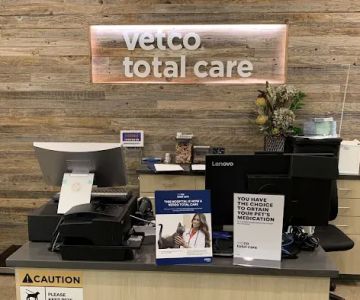A Day in the Life of a Veterinary Clinical Pathologist
- What is a Veterinary Clinical Pathologist?
- Morning Routine: Preparing for the Day
- Working in the Laboratory: Diagnosing Animal Diseases
- Collaboration with Veterinarians: A Crucial Partnership
- Real-Life Case Study: Diagnosing a Complex Condition
- Skills and Education Required for the Job
- Career Outlook and Opportunities in Veterinary Clinical Pathology
- How to Get Started in Veterinary Clinical Pathology
What is a Veterinary Clinical Pathologist?
Veterinary clinical pathologists are specialized professionals in the field of veterinary medicine. They focus on diagnosing diseases in animals by analyzing biological samples, such as blood, urine, and tissue. This critical role helps veterinarians make informed decisions about treatment plans for animals. In this article, we'll take a deep dive into what a day in the life of a veterinary clinical pathologist looks like.
Morning Routine: Preparing for the Day
The day starts early for a veterinary clinical pathologist. Mornings typically begin with reviewing the previous day's case results and preparing for incoming samples. Most of the time, these professionals work in laboratories associated with veterinary clinics or animal hospitals. After a quick cup of coffee, it's time to focus on reviewing the pathology reports and prioritizing cases based on urgency.
Working in the Laboratory: Diagnosing Animal Diseases
Once in the lab, the veterinary clinical pathologist’s primary task is analyzing samples to diagnose diseases. Whether it's identifying infections, assessing organ function, or detecting abnormalities in cell structures, every sample provides crucial information. Working with advanced diagnostic tools like microscopes and automated analyzers, these specialists examine samples closely, often spotting signs of disease that might go unnoticed by others.
Collaboration with Veterinarians: A Crucial Partnership
A significant part of a veterinary clinical pathologist’s day involves collaborating with veterinarians. Once a diagnosis is made, the pathologist communicates their findings to the treating vet, helping to shape treatment plans. This team-oriented approach ensures that animals receive the most accurate diagnosis and appropriate care. Through these discussions, clinical pathologists also educate veterinary teams about new disease trends or diagnostic techniques.
Real-Life Case Study: Diagnosing a Complex Condition
Consider a case where a dog exhibits signs of lethargy, poor appetite, and unusual urination. After preliminary tests, the veterinarian suspects a metabolic issue but needs confirmation. The clinical pathologist runs a series of blood tests, revealing a hormonal imbalance. This diagnosis leads to targeted treatment that saves the dog’s life. Such complex cases highlight the importance of a veterinary clinical pathologist's expertise in uncovering underlying health conditions in animals.
Skills and Education Required for the Job
Becoming a veterinary clinical pathologist requires advanced education and training. Typically, one must complete a veterinary medicine degree followed by a residency in clinical pathology. The job also demands a sharp attention to detail, critical thinking skills, and the ability to work with advanced diagnostic technology. Additionally, good communication skills are essential for explaining diagnoses to veterinarians and pet owners alike.
Career Outlook and Opportunities in Veterinary Clinical Pathology
The demand for veterinary clinical pathologists is growing, driven by advancements in animal healthcare and diagnostic technology. This specialized field offers excellent career prospects, with opportunities to work in animal hospitals, universities, research labs, and even for pharmaceutical companies. As a result, professionals in this field can expect competitive salaries and a fulfilling career path.
How to Get Started in Veterinary Clinical Pathology
For those interested in pursuing a career as a veterinary clinical pathologist, the first step is to gain a veterinary degree. Afterward, it's essential to complete a residency program that focuses on clinical pathology. Aspiring professionals should also seek out mentorship from experienced pathologists and participate in continuing education to stay abreast of the latest diagnostic technologies and research.











